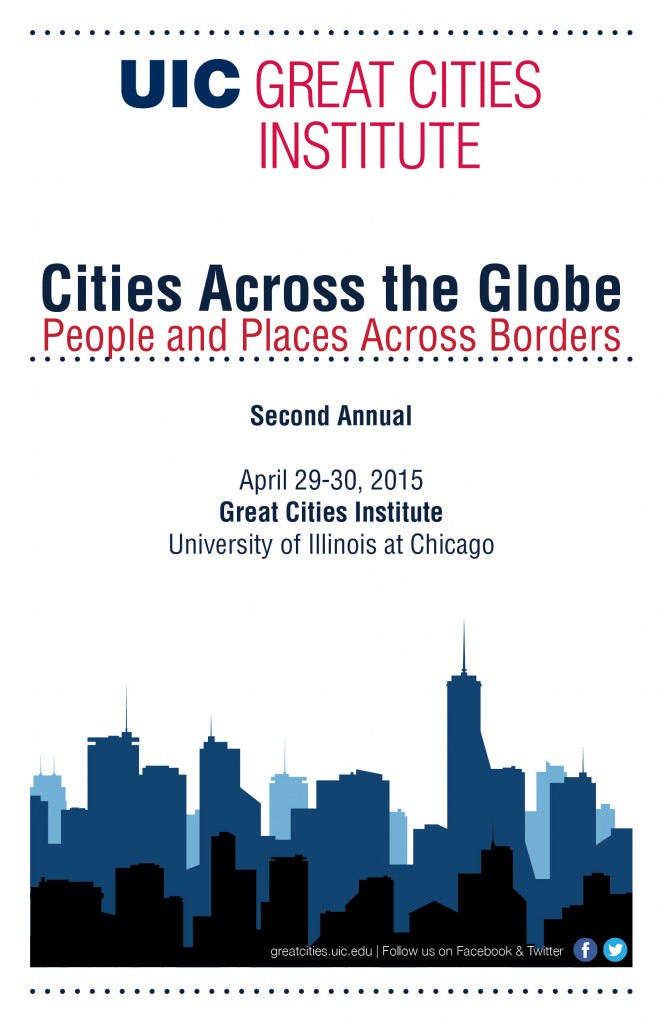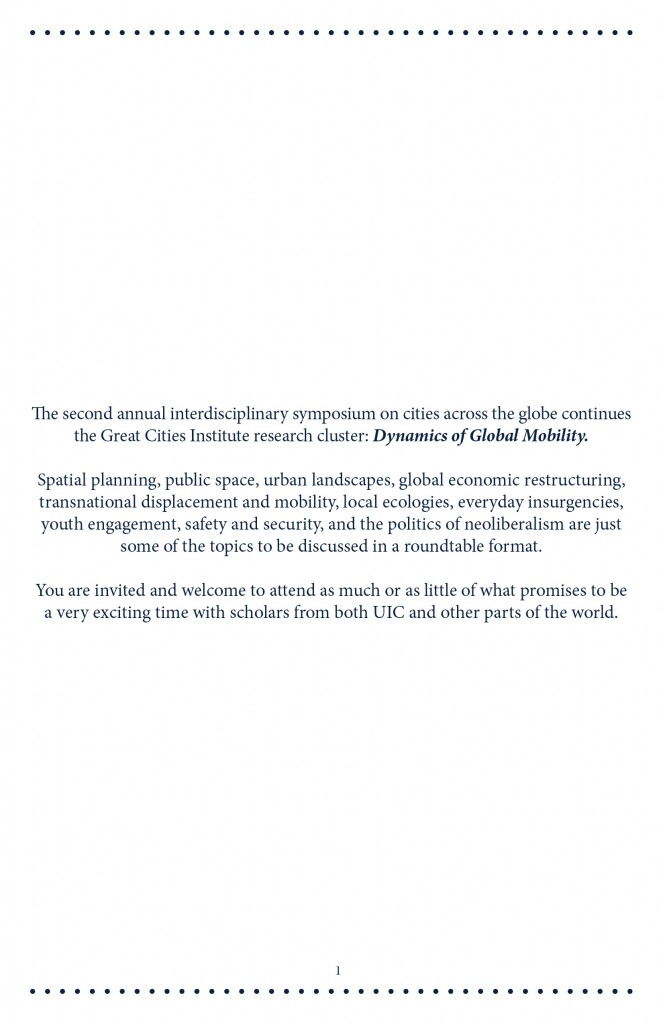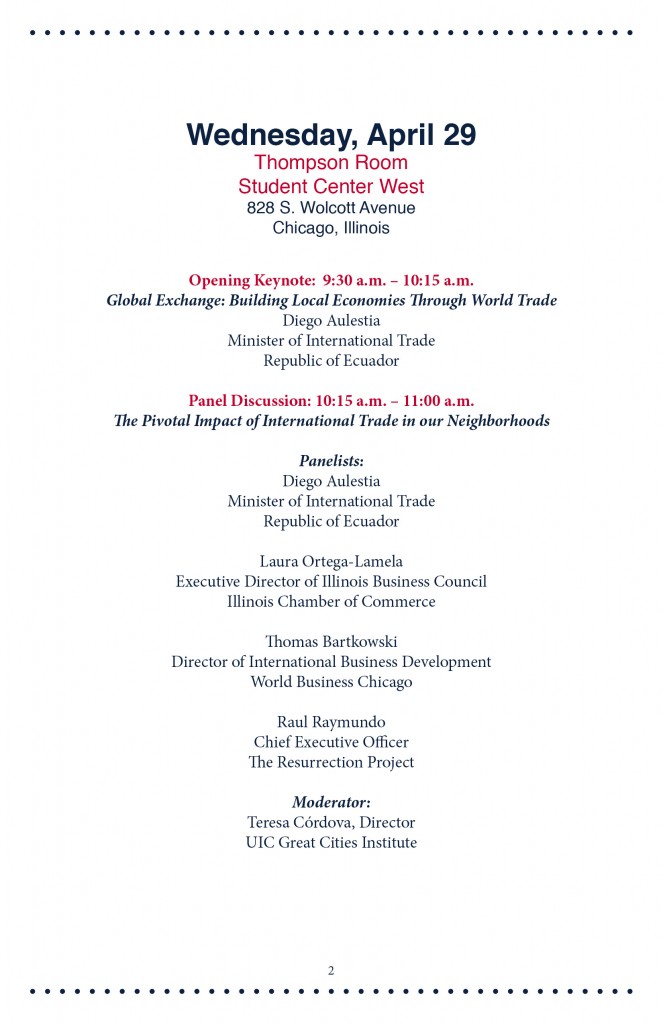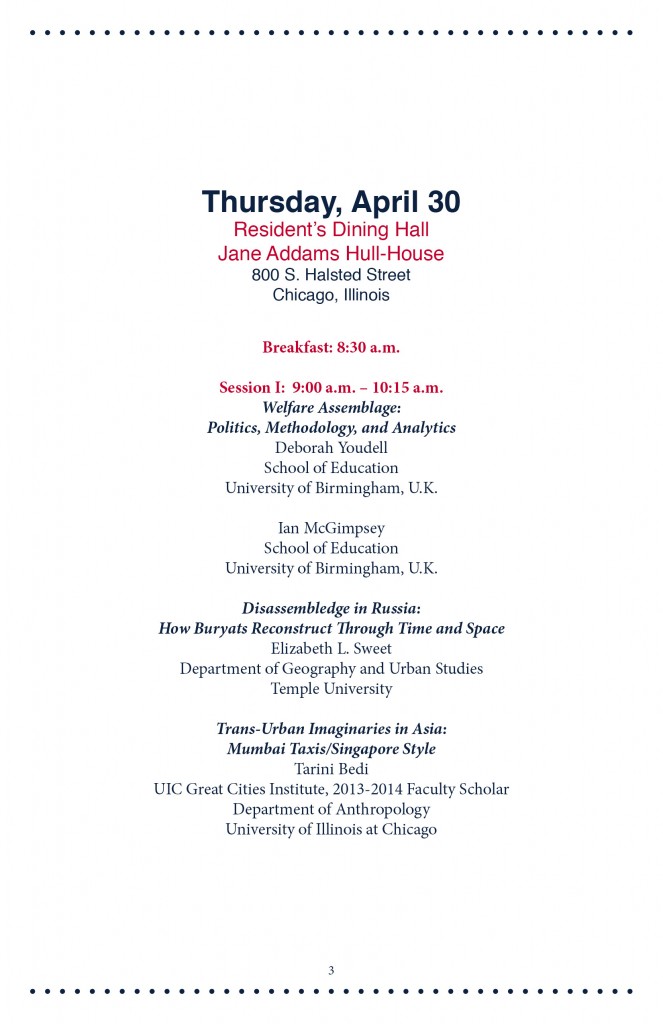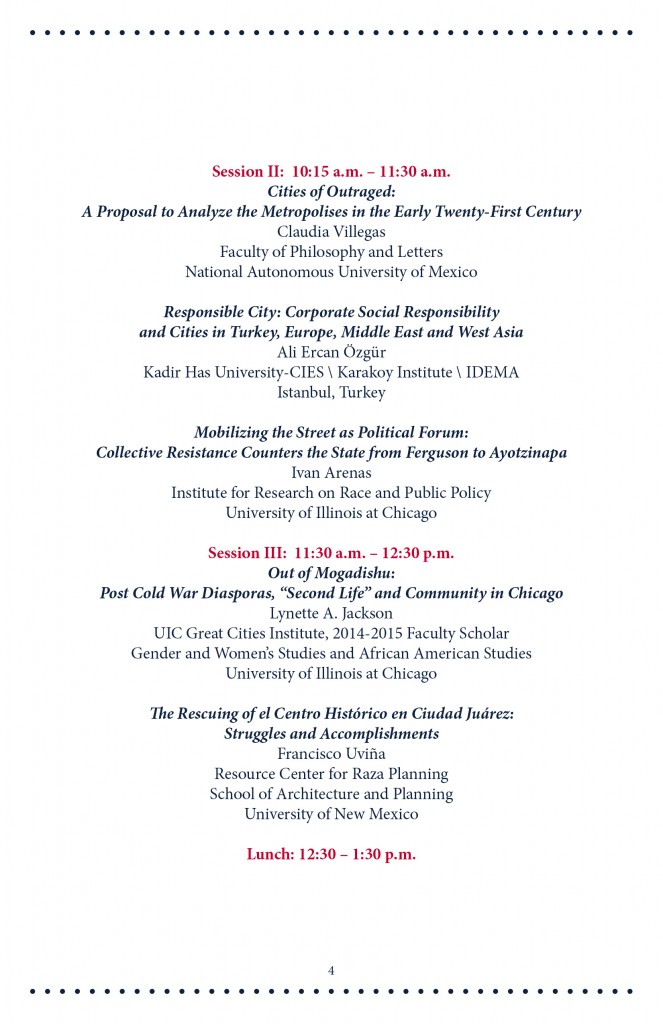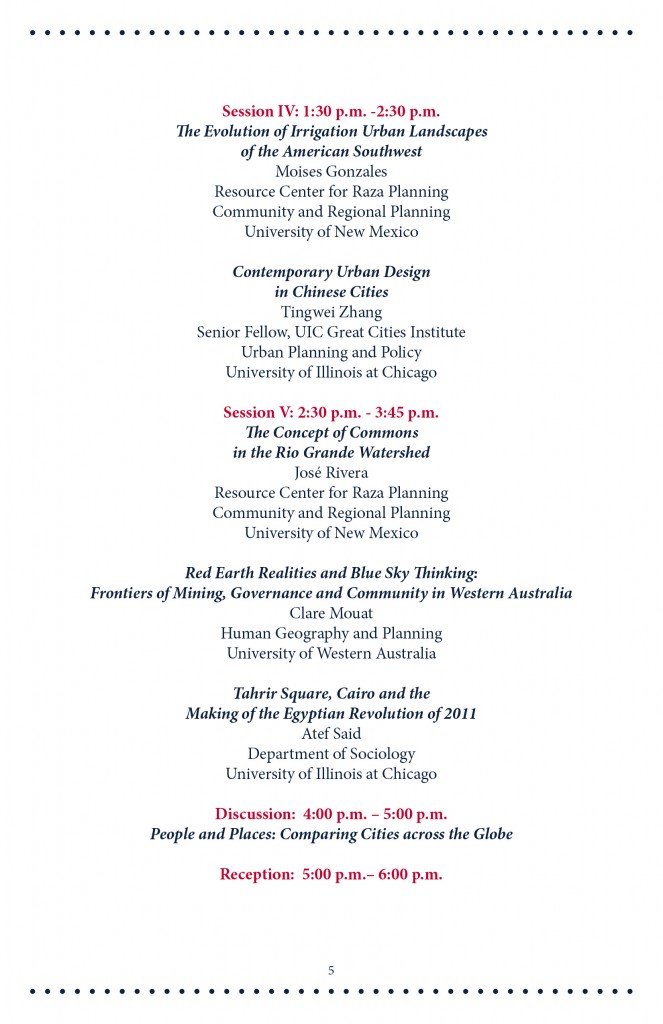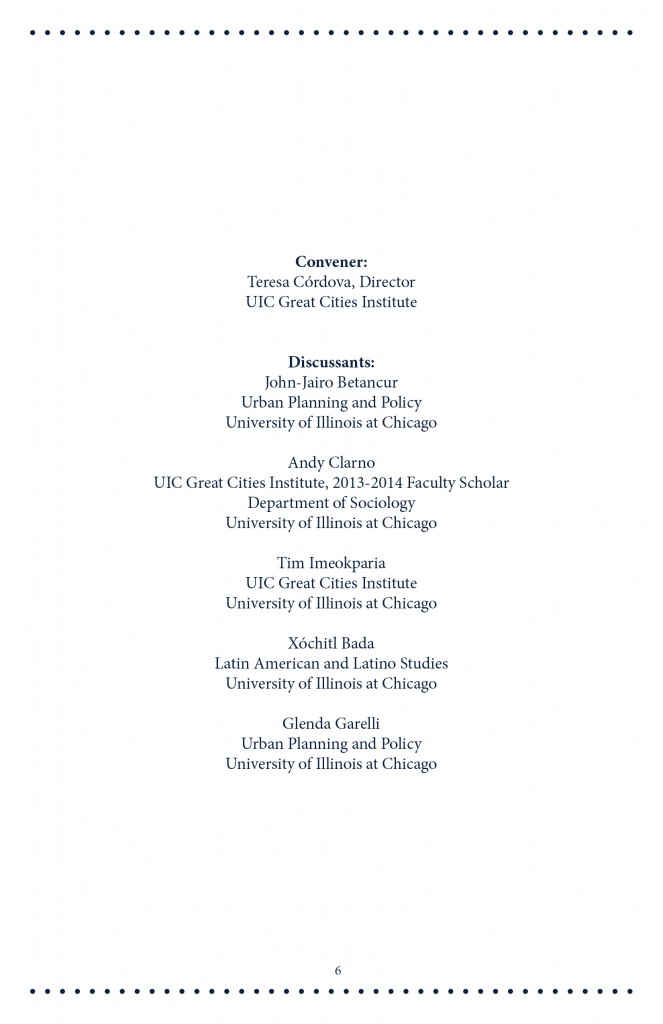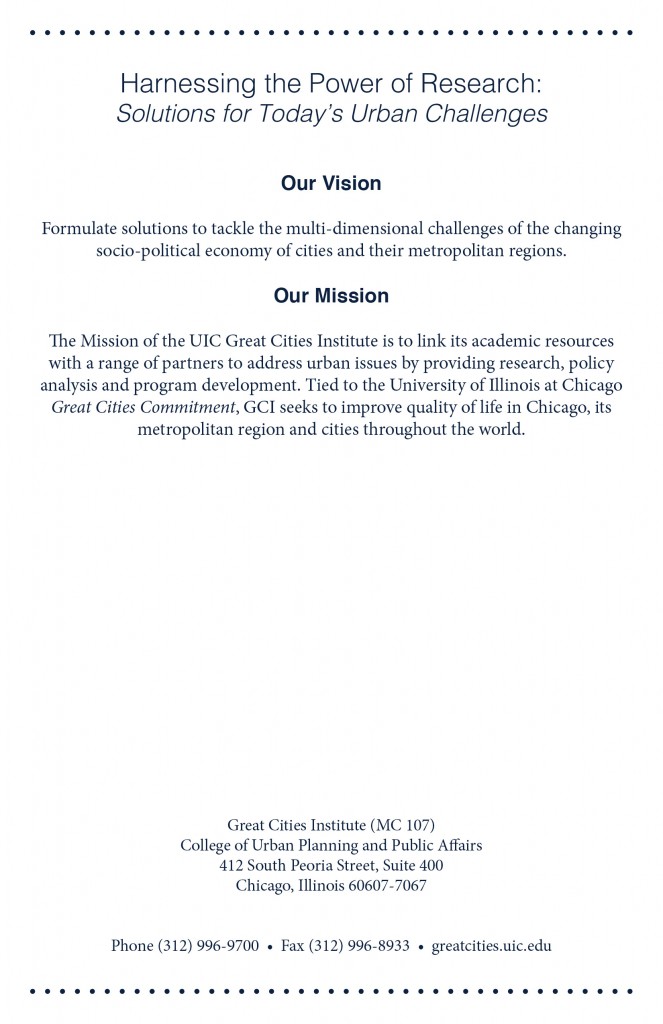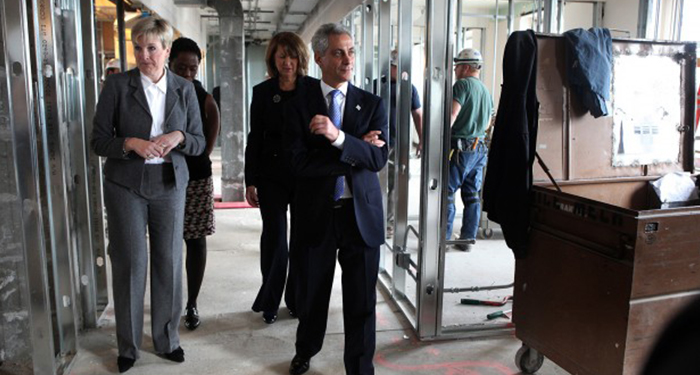
Dear Colleagues,
We are pleased to announce that the UIC Global Excellence Task Force and the UIC College of Medicine’s Center for Global Health, with the cooperation of Great Cities Institute, are in the second year of our program to foster new trans-disciplinary and mixed and multiple methods research in global health and well-being at UIC, The Global Health and Well Being Seed Grant.
Grants will be made for new hypothesis driven pilot research with a substantial likelihood of gaining external funding or that can be completed with a limited budget. Priority will be given to projects that:
• address global health and well-being research priorities;
• integrate multiple elements which can include, for example, biomedical science, social science, humanities, architecture, art, communications, urban planning, business, criminal justice, diversity, social justice and engineering;
• incorporate mixed and multiple methods;
• include investigators from both UIC’s East and West campuses.
This opportunity is open to full time tenure and non-tenure track faculty from any department. Applications must involve a minimum of 2 colleges representing both East and West campuses – only one of which can be from the health sciences. Each award will be a base maximum of $15K for one year; up to an additional $5 K will be awarded if matched 1:1 by the involved colleges, departments, or centers.
Deadlines
Letter of Intent: Tuesday, June 1, 2015 –Noon
Application: Application: Thursday, July 1, 2015 – Noon
Awards announced: September 2015
For RFA and forms visit CGH website: http://globalhealth.uic.edu/
Questions should be referred to .
With these applications we invite you to build teams capable of creating global solutions to shared health and well-being challenges.
Sincerely,
Stevan Weine
Professor of Psychiatry
Director, Global Health Research Training, CGH
Director, International Center of Responses to Catastrophes
Teresa Cordova
Director and Professor
Great Cities Institute

